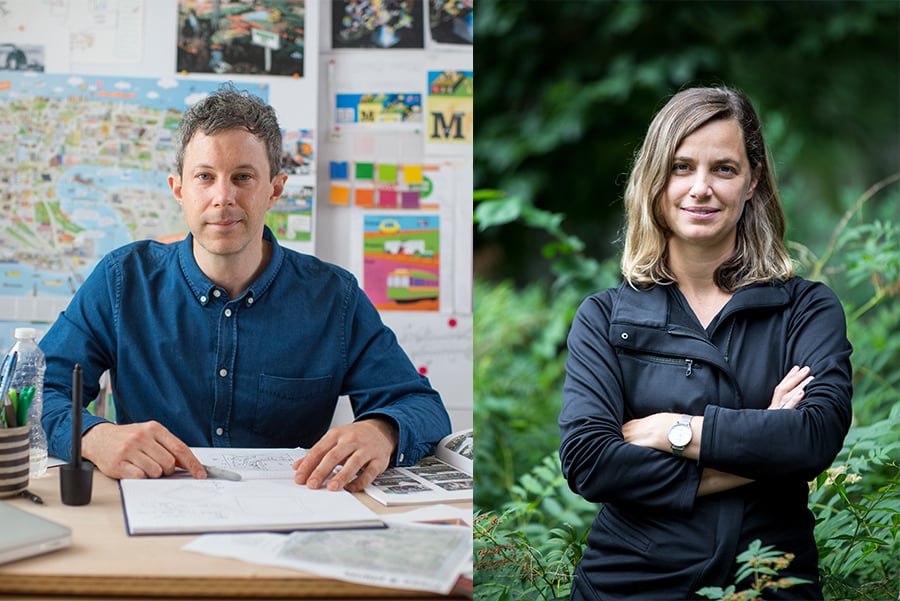
January 15, 2017
Landscape Architect Kate Orff and Urban Designer Damon Rich Win 2017 MacArthur Foundation Grants
Both Orff and Rich have similar goals of breaking down complexities of the built environment, and in the process, recentering discourse about urbanism on everyday city residents.

Landscape architect Kate Orff and urban designer Damon Rich, two of 2017’s MacArthur Foundation grantees, have similar goals of breaking down complexities of the built environment. In doing so, they recenter discourse about urbanism on everyday city residents—those most affected by decisions on planning, design, and land use.
“A major mode of working for me has been motivated by questions, rather than just being a landscape architect in the service-based profession,” says Orff. Early on, influenced by growing discussions of feminism and environmental degradation, she wrote her University of Virginia thesis on ecofeminism. After spending time in Chile, earning an MLA from Harvard, and working at OMA, she founded SCAPE, a landscape architecture studio distinctly oriented toward research and political advocacy.
SCAPE’s current work, including the Gowanus Lowlands master plan in Brooklyn and Town Branch Commons in Lexington, Kentucky, sets up encounters between citizens and the natural environment—especially waterscapes—with an emphasis on civic engagement. “We see every project as a chance for some kind of catalytic change,” Orff explains. “If you do a one-off project that doesn’t have an impact on some broader decision-making context, then it’s not really a systematic change.”
Rich is also plain about the effect of the political on design. After observing labyrinthine bureaucracy firsthand while working in the New York City parks department, Rich founded the Center for Urban Pedagogy (CUP), a nonprofit that uses design to demystify urban policy and planning issues. “The tradition of explanatory, narrative representation was foundational for me,” Rich says.
His decade-long tenure at CUP demonstrated the need for city planners and designers to collaborate with grassroots organizations, policy experts, and most important, local residents. Rich further put his observations and critiques of bureaucratic failings into action while serving as Newark’s first urban designer; in that role he addressed socially careless and racially insensitive planning in his negotiations on private developments and the creation of new public spaces.
Hector, the Newark-based urban design, planning, and civic arts studio that Rich founded with longtime collaborator Jae Shin in 2013, draws on many of his lessons and experiences, with a clear focus on civic participation and political advocacy. “In many ways,” Rich explains, “the reason that urban design and planning are useful places to start political conversations is that the physical environment is so present, brutal, and shared.”
Rich and Orff both see their roughly $650,000 MacArthur grants as victories for their professions, and hope that the awards will highlight the great work being done by others in their fields. “It was a big win for landscape. It was a big win for women in design,” Orff says. “This gives me the freedom to just do the most important things and try to do them really well and be transformational.”
For both, the wins are far from a cause for complacency, but rather a call to further action. “It’s an amazing honor,” Rich says. “And a serious challenge.”
You may also enjoy “Filmmaker Rick Prelinger Is Resurrecting New York City’s Lost Urban Landscapes.”





